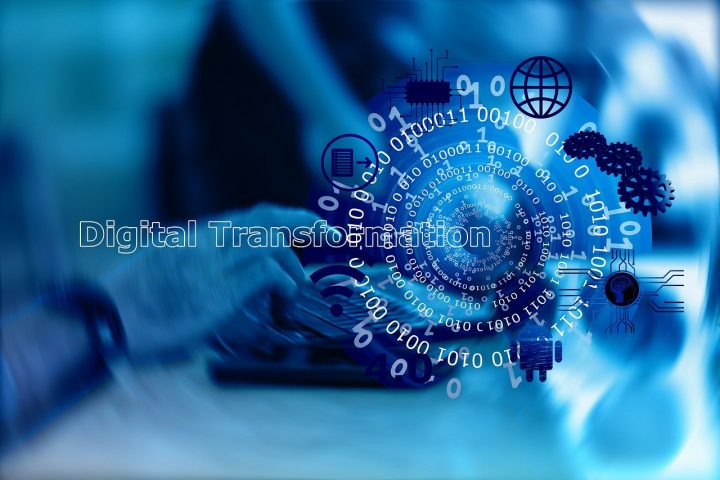The education sector is becoming more and more competitive, and hence introducing modern technologies to enhance the learnings of students has become imperative. Digital transformation is consequently considered to be essential for the survival of the new digital world that requires educators to adapt and adopt digital technologies, mindsets, and methodologies.

Here are the right tips for embracing digital transformation in modern education:
Putting up a strategy
If you’re up for introducing some significant change, then you’ll begin with developing a strategy and giving the thought to its implementation. If you’re to transform modern education digitally, you must ensure that you develop a strategy of how to move ahead with it to gain a successful implementation and execution of the strategy. Creating a successful plan of action and communicating all the key points to the stakeholders will help in the effective transformation of the education system in schools.
Putting up a strategy and working on its execution will ultimately help you in realizing a fruitful outcome. Technologies hold immense potential in the education sector; all that’s left is to leverage it properly. Read on to know how and what can be done with modern technologies to bring digital transformation in the education sector.
Training and investing in skills
Numerous technologies can be embraced to improve the quality of education at schools. But, will it be useful if the concerned people delivering the lessons aren’t fully aware of what they have in their hands. That’s the reason why teachers at school must be trained to use modern technologies to let them efficiently conduct interactive lessons.
Not just teachers, eventually the students will have to be taught about modern and advanced technologies. No matter how you feel about the presence of technology in your world, it’s here to stay. The use of technology has grown from being a quirky hobby to a necessity in a matter or years. Here, edtech can play a significant role in the digital transformation of the education sector.
Exposing students with technology will help them learn and adapt to modern-day tools. Moreover, they’ll quickly adapt to these technologies and hone their skills at schools, as it’s considered to be the most efficient time to learn when brains are still developing.
Integrating & leveraging digital data
Today, numerous edTech tools are changing the way teachers interact with their students in classes and how students learn their lessons.
For instance, if you’re willing to employ online collaborative whiteboard at your school, you’ll have to conduct research on it first. Learn about its features and also if it would be a tool that your teachers might use efficiently in classrooms?
By taking time to understand the areas of data that will prove most valuable to your institution will help you benefit from a wealth of insights that’ll assist the ongoing evolution of institutions’ digital transformation.
Automation
Automated Systems can be advantageous to institutions who are looking to enhance their digital maturity. Moreover, implementing automated systems can be helpful in managing all the operational tasks from administration workflow management. Doing this will help in increasing productivity exponentially with minimal infrastructure. Further, the teachers will effectively put their valuable efforts to develop interactive lessons than investing their time in administration work.
Education might have a goal of teaching young minds for a bright future, but unfortunately, that’s not the only focus of it. The truth is that teaching is filled with annoying yet necessary tasks that may ultimately distract a teacher from useful goals at hand. Such responsibilities include attendance, grading, communication with students, and all the other side work of delivering education.
Experimenting with modern technologies
Today, many emerging technologies offer a wide range of potential opportunities for educators to experiment the way they explain new concepts to their students. Like with online collaborative whiteboards, they can use video clips, gamified elements, mixed media and much more to make their sessions interactive and fun for students.
Adding the touch of digital transformation to an institution will help in understanding the complete requirements that it demands to enhance the quality of learnings being delivered to students. These modern technologies not just include interactive technologies such as real-time online whiteboard but also the disruptive ones such as AR/VR, Artificial Intelligence, Machine Learning, and much more.
Boosting Collaboration
Social media has given a new definition to the word ‘community’. Furthermore, numerous digital tools are transforming the way communities are interacting with each other. Today, there are advanced means of how teachers and students interact with each other. With technologies such as virtual whiteboards, the students and teachers across boundaries can connect and have an enriching knowledge flow.
Apparently, when such digital tools are integrated within the education system, they can be used to promote and improve several skill sets of students. This will include critical thinking, creativity, communication, digital literacy, problem-solving, digital responsibility/citizenship and much more.
Innovative Assessments

With advanced digital tools, the contexts and formats of the assignment provided to the students can be used to put something innovative on students plate. The openness of the online environment and the integration of technologies in the form of game attributes can create all kinds of assessments, especially formative ones, which may help in measuring learning progress of students, not just their learning endpoints.
Gamification can be understood as one subset of these innovative assessments. Gaming technology makes the learning of a complicated subject matter more interactive and exciting. With rapidly growing technology, it has found its way in the educational discipline to enhance the learnings of students.
Today, numerous games offer a unique opportunity to apply new knowledge and make mission-critical decisions easy for students. These games are designed to provide immediate feedback; with this, students can keep themselves intrinsically motivated to keep playing them and honing skills throughout.
Conclusion
Digital Tools are acting as the right transforming elements of the education space. It’s imperative to understand how they can be leveraged in a way to make the teachings and learnings in class more effective.
We hope the above tips are helpful for you to learn about the transformation that technology can bring to the education field and also how can you effectively make that happen!

















